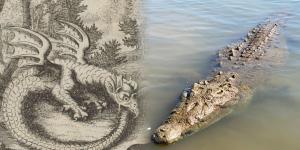You are here
How Was Zeniff Overzealous?

Mosiah 9:3
The Know
Some years after the exodus from the land of Nephi to Zarahemla, a “large number” of Nephites wanted to return and “possess the land of their inheritance” (Omni 1:27). A Nephite named Zeniff was a member of this expedition and was assigned to “spy out their forces” (Mosiah 9:1). While among the Lamanites, Zeniff saw “that which was good among them” and “contended with [his] brethren” to “make a treaty with [the Lamanites]” and not destroy them (Mosiah 9:1–2).
Unfortunately, this did not soften the heart of the group’s commander, who ordered that Zeniff be slain.1 Zeniff was “rescued by the shedding of much blood” as those in the Nephite army turned against each other: “Father fought against father, and brother against brother” (Mosiah 9:2). The greater part of the army was destroyed; Amaleki noted that only fifty survived to limp back to the city of Zarahemla (Mosiah 9:2; Omni 1:28).
After returning to Zarahemla, Zeniff was still “over-zealous to inherit the land of our fathers” and gathered together “as many as were desirous to go and possess the land” (Mosiah 9:3). A “considerable number” joined the group, including Amaleki’s unnamed brother (Omni 1:29–30). This second expedition was not purely military but would have had to include women and children, as no additional expeditions were made.2
This second return attempt appears to have been a difficult journey—foreshadowing the group’s eventual trials in the land. Zeniff noted that they wandered the wilderness for many days and “were smitten with famine and sore afflictions” because they were “slow to remember the Lord [their] God”.3 Eventually, they reached a location near the place where the original Nephite army had been destroyed, which was “near to the land of our fathers,” and pitched their tents there (Mosiah 9:4).
From there, Zeniff went with an embassy of four men “into the city, in unto the king, that [he] might know the disposition of the king.”4 While the text does not communicate specifics of the negotiations, Zeniff records that the king “covenanted with me that I might possess the land of Lehi-Nephi, and the land of Shilom,” ordering any of his people there to “depart out of the land” (Mosiah 9:6–7). Zeniff’s grandson Limhi would refer to this agreement as a treaty (Mosiah 7:21). Following this agreement, Zeniff and his people “went into the land that we might possess it” (Mosiah 9:7).
Zeniff appears to have assumed good intentions on the part of King Laman. Many years and wars later, however, both Zeniff and his grandson Limhi would refer to King Laman’s “cunning and craftiness” in allowing the Nephites to “possess [the lands of Lehi-Nephi and Shilom] in peace” in order to later bring them into bondage.5 King Laman’s later attacks against Zeniff and his people—and the subsequent attacks during the reigns of King Noah and King Limhi—were attempts to ensure that all people in the Zeniffite kingdom became Lamanite vassals. Zeniff’s overzealousness may have blinded him to the Lamanite king’s ultimate intentions. Thus, instead of possessing the land in peace, the Nephites would do so in conflict, creating an ironic wordplay on the name of the land Shilom and its similarity to Hebrew root for peace.6
When Zeniff and his people went to return to the land of Nephi, they did so without the guidance of their prophet.7 Years before, when Mosiah and his followers had originally fled from the land of Nephi, they were guided in the wilderness by “many preachings and prophesyings … admonished continually by the word of God; and … led by the power of his arm” (Omni 1:13). However, when Zeniff and his followers ventured back, they experienced the opposite: “[They] were smitten with famine and sore afflictions; for [they] were slow to remember the Lord our God” (Mosiah 9:3). They decided to retake a land that the Lord had commanded them to flee from only years—likely not even a generation—previously. In doing so, they stumbled, fell, and made many errors. Many people died and even more suffered because Zeniff and his followers decided that they knew the will of the Lord better than His appointed leaders did.
One of the great errors made by Zeniff and those that followed him, as well as by those on the first expedition, was their desire to act according to their own timing and not the Lord’s. The Lord may have intended for the land of Nephi to be reclaimed eventually, but the Zeniffites decided to advance that timeline. In addition, they seemingly wished to retake the land of Lehi-Nephi out of a sense of pride, not to glorify God.
The Why
Both Zeniff himself and his grandson Limhi described Zeniff as being overzealous to inherit the land of his fathers (Mosiah 7:21; 9:3). In our own lives, we too are often overzealous in many different ways, including the following:
- ignoring the promptings of an answer to prayer in favor of our own desires
- pushing for a ward or stake calling because we believe we can do it better
- making a spiritually risky decision because it will benefit us temporally
- assuming that we know better or can do better than Church officers or priesthood leaders
It is important to remember that overzealousness does not equate to wickedness. Zeniff made unfortunate mistakes, but those mistakes did not make him unrighteous. Latter-day Saint writer Val Larsen had this to say about Zeniff’s path:
This doesn’t mean Zeniff was a wicked man. He wasn’t, and that is a key part of Mormon’s message. The importance of following prophets is all the more apparent because Zeniff was a good, not a bad man. And yet, by rejecting prophetic leadership, he placed himself in circumstances that turned him into precisely the kind of person he least wanted to be.8
The Lord encourages His Saints to be “anxiously engaged in a good cause, and do many things of their own free will, and bring to pass much righteousness” (Doctrine and Covenants 58:27). However, Mormon’s inclusion of Zeniff and his record is a warning to latter-day readers to beware of overzealousness and rejecting prophetic counsel as a result.9 Even in the Zeniffites’ mistakes, Mormon shows that the Lord still protected them, and similarly, the Lord will not forsake us.10 As we apply Mormon’s lesson and hearken to the teachings of living prophets, we can be reassured that even though circumstances may be difficult at times, we are on the correct path, we will be blessed, and the Lord will preserve us.
Further Reading
Matthew L. Bowen, “‘Possess the Land in Peace’: Zeniff's Ironic Wordplay on Shilom,” Interpreter: A Journal of Mormon Scripture 28 (2018): 115–120.
Nathan J. Arp, “An Analysis of Mormon’s Narrative Strategies Employed on the Zeniffite Narrative and Their Effect on Limhi,” Interpreter: A Journal of Latter-day Saint Faith and Scholarship 59 (2023): 159–190.
Val Larsen, “Prophet or Loss: Mosiah1/Zeniff, Benjamin/Noah, Mosiah2/Limhi and the Emergence of the Almas,” Interpreter: A Journal of Latter-day Saint Faith and Scholarship 60 (2024): 367–408.
- 1. In his record of the expedition, Zeniff referred to the commander as “our ruler.” Mosiah 9:2. This presents the possibility that the commander was from a Nephite royal line, making some sense of the intense desire to “possess the land of their inheritance”: it was possibly considered part of a personal birthright. Omni 1:27.
- 2. Amaleki noted, prior to his death during the reign of King Benjamin, that after their departure, “I have not since known concerning them.” Omni 1:30. Years later, King Mosiah dispatched a small expedition because his people had “heard nothing from them from the time they left the land of Zarahemla.” Mosiah 7:1. Therefore, any families would have had to departed then, not at a later time.
- 3. Mosiah 9:3. This lack of provisions could have been exacerbated by the size of the group, which contained whole families, unlike the first expedition, which appeared to have contained only men. See Mosiah 9:2.
- 4. Mosiah 9:5. It is worthwhile to note that the text does not name the city in question as Lehi-Nephi. Indeed, this seems unlikely given Zeniff’s initial description of Lehi-Nephi as in disrepair and sparsely populated, without any fields being planted. See Mosiah 9:8–9). This makes it an unlikely location for a king to hold court. It is possible instead that Zeniff and his compatriots went to an unnamed city from which King Laman ruled.
- 5. Mosiah 7:21; 9:10; 10:1. There is no reason to completely discount this information, as the relationship that later existed between the Lamanites and Zeniffites during the reign of King Limhi was one of overlords and vassals (Mosiah 21:3). In addition, a system of kings and vassal kings is directly attested in Mosiah 24:1–3 and by the later example of King Lamoni and his father and other contemporary Lamanite rulers, such as Antiomno, the king of the land of Middoni (Alma 20:3–4).
- 6. Matthew L. Bowen, “‘Possess the Land in Peace’: Zeniff's Ironic Wordplay on Shilom,” Interpreter: A Journal of Mormon Scripture 28 (2018): 115–120. As Bowen shows here, Zeniff’s use of language demonstrates irony: “Zeniff’s use of parallelistic language in Mosiah 9:5‒6 strongly suggests his correlation of the šlm-derived name Shilom with ‘peace’—Hebrew šālôm.” When the Lamanites were stirred up to war, it came to the land of Shilom. See Mosiah 9:12–14; 10:6. As Bowen concludes, “Zeniff’s juxtaposition of the name Shilom alternatively with ‘peace’ (šālôm) and with ‘war’ terminology serves the same function throughout his autobiography. For Zeniff, the name Shilom served as the bittersweet symbol of a mostly tenuous ‘peace’ with the Lamanites in whom he had once seen ‘Nephite’-like ‘good’ (Mosiah 9:1) and an ironic reminder of the ever-looming reality of war and bloodshed in the lives of his people.”
- 7. Mormon mentions that Zeniff consecrated his own priests and doesn’t mention any prophets or priests that may have traveled with the expedition. Mosiah 11:5.
- 8. Val Larsen, “Prophet or Loss: Mosiah1/Zeniff, Benjamin/Noah, Mosiah2/Limhi and the Emergence of the Almas,” Interpreter: A Journal of Latter-day Saint Faith and Scholarship 60 (2024): 371–372.
- 9. Jacob’s words in 2 Nephi 9:28 are worth remembering here as well: “O that cunning plan of the evil one! O the vainness, and the frailties, and the foolishness of men! When they are learned they think they are wise, and they hearken not unto the counsel of God, for they set it aside, supposing they know of themselves, wherefore, their wisdom is foolishness and it profiteth them not. And they shall perish.”
- 10. Nathan J. Arp, “An Analysis of Mormon’s Narrative Strategies Employed on the Zeniffite Narrative and Their Effect on Limhi,” Interpreter: A Journal of Latter-day Saint Faith and Scholarship 59 (2023): 167.
KnoWhy Citation
Related KnoWhys
Subscribe
Get the latest updates on Book of Mormon topics and research for free





